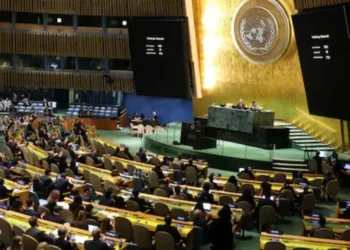The Pakistani government has bolstered the security of Hafiz Saeed, the leader of Lashkar-e-Taiba (LeT) and Jamaat-ud-Dawa (JuD), due to concerns over a covert operation after the Pahalgam terror attack that resulted in 26 fatalities.
Saeed, sought in connection with the 26/11 Mumbai terror attacks, has been strategically situated in a heavily populated region that includes civilians, a mosque, and a madrassa, according to a report by The Times of India.
Former SSG Commandos deployed for Hafiz’s protection
Ex-commandos from Pakistan’s Special Service Group (SSG) have been assigned to protect the 77-year-old. Extra personnel have also been designated to maintain security at multiple residences, including his home in Mohalla Johar, Lahore.
Hafiz Saeed is currently serving a 46-year prison term due to various cases of terror financing. In 2022, he received a 31-year prison sentence for two distinct cases involving terror financing. Since he is presently incarcerated, officially, his home has been converted into a provisional sub-jail.
As per reports, a control room has been established to monitor all activities using gesture recognition CCTV cameras within a 1 km range.
Hafiz Saeed’s LeT behind Pahalgam Attack
On April 22, terrorists attacked Baisaran Valley close to Pahalgam town in Anantnag district of south Kashmir, resulting in the deaths of at least 26 people, primarily tourists.
Multiple reports, referencing security agencies, have indicated that the terrorist attack was executed by a seasoned group functioning under Hafiz Saeed’s command. The component responsible for the assault, which has prompted multiple diplomatic responses from India towards Pakistan, is linked to the banned group LeT. It conducted the assault with assistance from regional militants, alongside ground personnel from the Valley.
The module has been operating in the Kashmir Valley for a long time, and the Pahalgam terror attack has merely brought them back into focus.
Following the horrific Pahalgam terror attack, India revealed multiple diplomatic actions such as halting the SAARC Visa Exemption Scheme (SVES) for Pakistani citizens, expelling Pakistani military attaches, suspending the 1960 Indus Water Treaty, and shutting down the Integrated Check Post (ICP) at Attari, among other measures.












